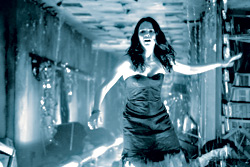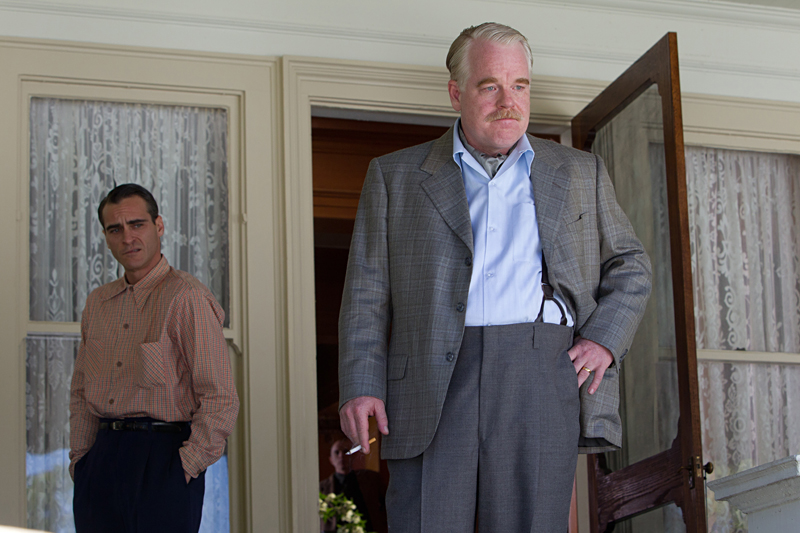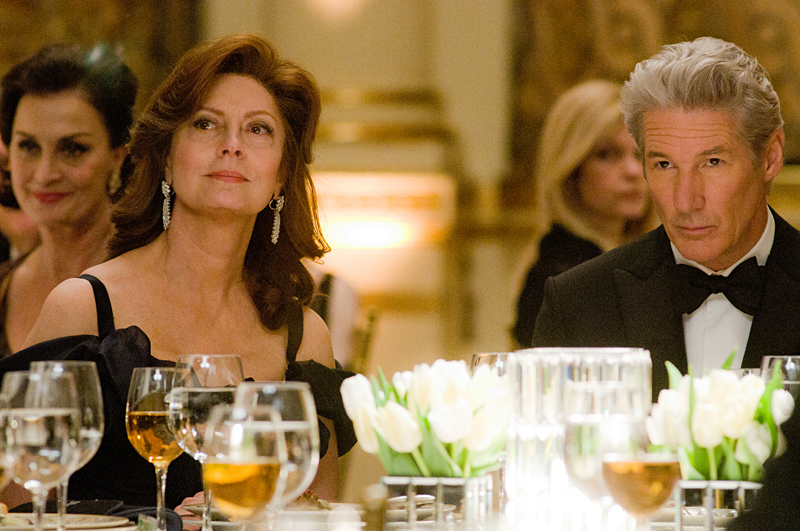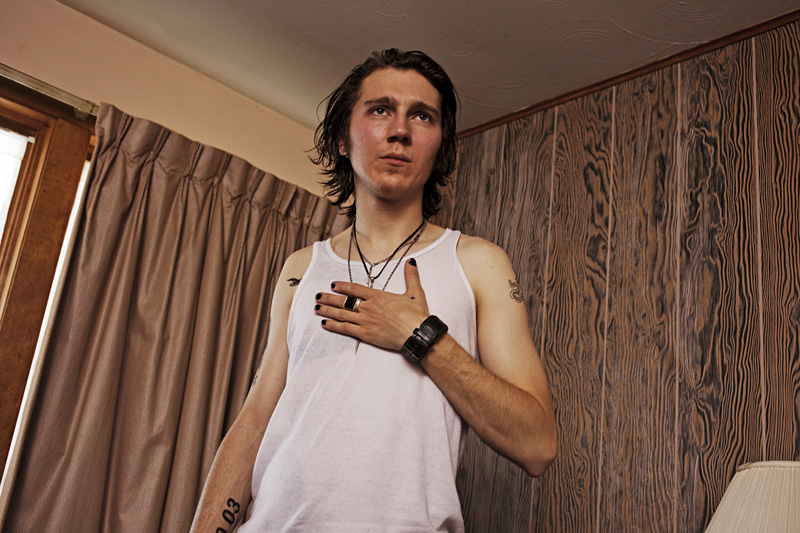Our anemic movie industry recycles so relentlessly that even our complaints about such plasticized repackaging come off as recycled product of its own, offered primarily to draw the line between concerned aging cinephiles and the target consumers who don’t care a whit. But still, we’ve become a culture not merely tantalized by but doped on never-ending resurrections of our own recent junk. The market dynamic seems to be accelerating, and perhaps there’ll be a cyclical point when the diminishing returns will vanish altogether, and the punklike essence of movies—people, stories, experience, visual insight—may rise up. Or maybe not.
That no one is going to the mat for Irwin Allen’s old The Poseidon Adventure is beside the point; the inaugural disaster film was old-fashioned cheesecake. But it was still the ’70s, so the actors looked like real people; the catastrophe at hand was entirely a matter of sets, stunts, real fire, and gravity; and the characters weren’t hyperformulated with motivational backstories and simple hero-villain identities. The new Poseidon— an empty-skulled genre mechanism and nothing more—begins in digital fourth gear, swooping up, over, and around the animated ship, and catching glimpses of a jogging Josh Lucas all in one shot! Except we know it’s not—it’s merely a tired series of computer-generated sutures and tricks, convincing to no one.
But it’s with the brutally obvious early scenes that introduce us to the B-list cast that Wolfgang Petersen’s movie truly begins to reveal itself. Instead of Gene Hackman’s bizarrely Nietzschean priest of the original film, we get Lucas as a career gambler with a mercenary sense of survival and lots of helpful Navy experience as a cliff diver. Kurt Russell is his counterpoint, an ex–New York mayor (“Cool!” someone says in mid-fight-for-life) and, also luckily, a retired firefighter. His daughter (Emmy Rossum, intolerably dewy at times) is stumping for her boyfriend (Mike Vogel), and even shows Daddy the secret engagement ring, right before they slide down a firehose over a lake of fire.
Richard Dreyfuss, as a heartbroken gay millionaire who is literally climbing over the rail in a suicidal lurch when the monster wave appears, proves to be mostly an impediment in the trip through the capsized vessel, but no more so than a handful of other lackluster souls. (Fergie, of the Black Eyed Peas, is the ballroom chanteuse not singing “The Morning After.”) Old people—the linchpin of every cruise ship passenger list—are nowhere to be seen here; when it comes time for a sacrificial rescue underwater, Russell is Shelley Winters of the original.
Still, nobody is able to act in any way even James Lipton could praise; Petersen’s movie moves too quickly, so conversations are reduced to stone-age quips. Kevin Dillon’s caricatured ass-wipe is subjected to one of the most deplorable deserving-death setups ever concocted, trying to pick a drunken fist-fight within minutes of the boat turning over. (How you will miss Ernest Borgnine’s Rogo, the fat cop who reflexively resists Hackman’s messianic leader, evoking every friend’s grouchy, work-hardened uncle I’d ever met as a kid.) It’s telling, in the blitz of blustery destruction and expense, that the most pungent sequence is set in an air duct, where all of the characters are crammed and the serious claustrophobia of Mexican stowaway Mia Maestro becomes a distinctly nasty crucible.
In the end, Poseidon, like Steven Spielberg’s War of the Worlds, may go down better with most audiences than it did with me. Disaster films—a supposedly fun thing I may never want to do again after 9/11—are simple death porn, and the easy wow factor of fireballs, massive explosions, flying bodies, and architectural obliteration on a large scale is, or should be, no longer a gimme. Petersen’s film doesn’t avert its gaze from the corpses and mayhem like the original mostly did—as if to, what, chasten us for ever enjoying disaster movies? Or has 9/11, in Hollywood’s eyes, been converted to a kind of combat seasoning, after which we should not only tolerate experiences of bloody catastrophe but thrill to them? Did it take four downed planes to turn us into the wreck-wound junkies of J.G. Ballard’s Crash? I missed the inoculation, I guess, and don’t look forward to the inevitable remake of The Towering Inferno.









